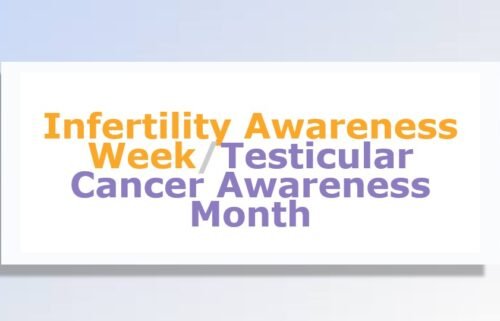High levels of Covid infection right now could mean problems for vaccines later, ex-CDC chief says
With a climbing number of Covid-19 vaccinations in the US, the light at the end of the tunnel is growing brighter. But right now, experts say it is critical to work on lowering case numbers — for several reasons.
Not enough people are protected against the virus yet — only about 13.7% of the US population is fully vaccinated — and a dangerous variant that’s rapidly spreading could fuel another surge of infections.
“We must act now, and I am worried that if we don’t take the right actions now, we will have another avoidable surge — just as we are seeing in Europe right now and just as we are so aggressively scaling up vaccination,” Centers for Disease Control and Prevention Director Dr. Rochelle Walensky said Monday.
And high levels of infection now could also mean problems for vaccines later on, one expert told CNN.
“Not only does uncontrolled spread cause avoidable illness, hospitalization and death, but it increases the risk that an even more dangerous variant may emerge that could make the vaccine less effective,” said Dr. Tom Frieden, a former CDC director.
You asked, we answered: Your top questions about Covid-19 and vaccines
Travels and crowds tend to lead to surges
While vaccines are being rolled out, Frieden says Americans should continue taking precautions, like wearing face masks and limiting travel and indoor time with people not from their household.
“When people travel and mix, you can see a big surge of infections a couple of weeks later,” he added.
Despite health officials’ warnings — some Americans are doing both.
The Transportation Security Administration screened more than 1.5 million people at airports nationwide on Sunday — a pandemic-era record that beats the one that was set just two days earlier.
Meanwhile, spring breakers are flocking to popular destinations such as Florida, where Miami Beach officials declared a state of emergency and set a curfew in response to crowds the mayor said have been “more than we can handle.”
All that while governors and local leaders across the country are easing Covid-19 restrictions meant to curb the spread of the virus.
Track Covid-19 cases in the US
Vaccines have already saved thousands of lives
Frieden says he believes the US will likely see another surge, but this one will be “far less deadly” because of the vaccines that are being administered.
So far, more than 83.9 million Americans have gotten at least one dose of a Covid-19 vaccine and more than 45.5 million have been fully vaccinated, according to CDC data.
“We estimate that vaccination has already saved at least 40,000 lives in the US,” Frieden said. “These are really good vaccines and the quicker we get them out the better.”
Three Covid-19 vaccines have so far gotten the green light from the US Food and Drug Administration — Pfizer, Moderna and Johnson & Johnson, the only one of the three that requires a single shot.
And a fourth vaccine could soon be on the way. AstraZeneca is expected to apply in the next few weeks for emergency use authorization for its vaccine.
AstraZeneca’s vaccine showed 79% efficacy against symptomatic disease and 100% efficacy against severe disease and hospitalization in a new, US-based clinical trial, the company said Monday.
However, the independent board that reviews data from multiple Covid-19 vaccine candidates expressed concern over the findings, according to a statement posted early Tuesday by the National Institute of Allergy and Infectious Diseases.
The Data and Safety Monitoring Board “expressed concern that AstraZeneca may have included outdated information from that trial, which may have provided an incomplete view of the efficacy data,” the statement said.
“We urge the company to work with the DSMB to review the efficacy data and ensure the most accurate, up-to-date efficacy data be made public as quickly as possible,” it added.
Earlier, AstraZeneca said it hoped to deliver 50 million doses within a month if it gains emergency use authorization.
“We plan to submit to the FDA in the first half of April, assuming the FDA is very supportive of our submission,” Ruud Dobber, president of AstraZeneca’s biopharmaceuticals business unit, told CNN in a statement.
“After an approval from the FDA, we will instantly release 30 million doses in that first phase, and then in the same month another 20 million,” the statement added.
Recommendations for the fully vaccinated
Americans who are already fully vaccinated should feel free to visit their unvaccinated family and friends without restrictions, CDC officials said, but added that visits should be limited to one unvaccinated household at a time.
“In the setting that the unvaccinated people are from a single household, and all the unvaccinated people are at low risk of severe Covid-19 illness, no prevention measures are needed, so these visits could happen indoors with no mask or physical distancing,” CDC epidemiologist Tami Skoff said.
For example, fully vaccinated grandparents can visit their unvaccinated daughter and her unvaccinated children indoors and without masks, assuming none of them is at higher risk for severe disease, Skoff said.
The recommendations only apply to people who are fully vaccinated, Skoff said, meaning it has been at least two weeks since the second dose of a two-dose vaccine series or two weeks since receiving the single-dose Johnson & Johnson vaccine.
“There is a growing body of evidence that suggests that fully vaccinated people are less likely to have asymptomatic infection, and therefore potentially less likely to transmit SARS-CoV-2 to others,” Skoff said.
But there are two important exceptions that would require everyone to follow safety precautions: if any of the unvaccinated people at at high risk for severe Covid-19 or if there are more than two unvaccinated households mixing.
Read the CDC guidance for fully vaccinated people
A third of hospitalized patients experience long-term effects
Researchers are also trying to understand more about the long-term aftermath of infections — and just how many people may be impacted.
About a third of hospitalized Covid-19 patients experience long-term effects that can affect multiple organ systems, according to a comprehensive review of scientific studies published in the journal Nature Medicine.
The researchers reviewed scientific literature on post-acute Covid-19 — meaning complications caused by the virus that extend beyond four weeks after symptoms started.
“Long Covid” effects can have an impact on more than a half dozen organ systems, including the pulmonary, hematologic, cardiovascular, neuropsychiatric, renal, dermatologic, gastrointestinal and endocrine systems, the studies show.
Among the most common prolonged symptoms: fatigue, shortness of breath, brain fog, tachycardia, anxiety, sleep disturbances, depression and post-traumatic stress disorder.
The researchers suggested a framework to care for these patients through multidisciplinary long Covid clinics and praised the work of patient advocacy groups, including the COVID Advocacy Exchange, the Body Politic and Survivor Corps, for gathering data about patients’ symptoms and coordinating with researchers to help gather more information.




